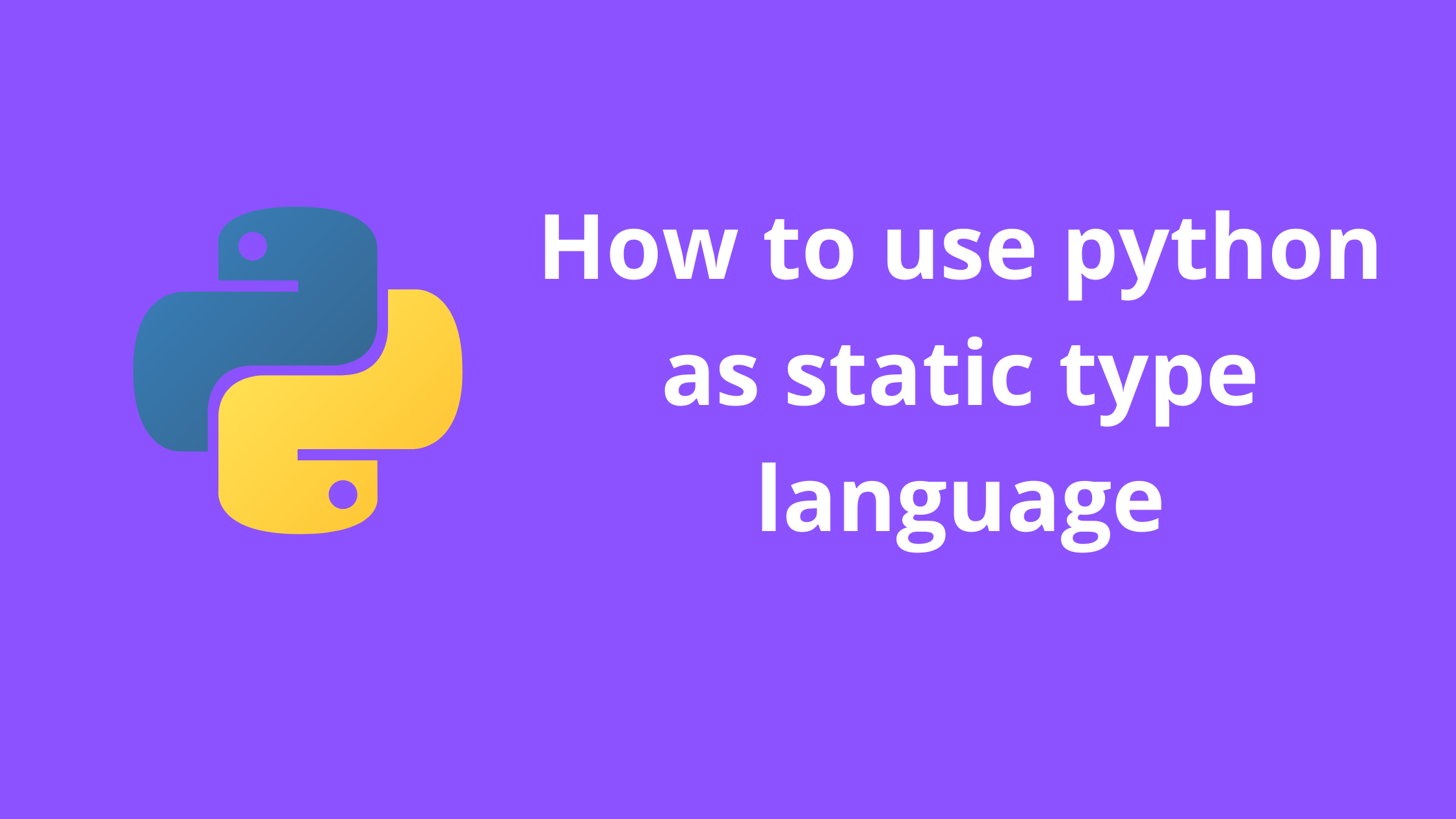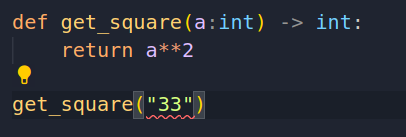Why use static typing?: Static type languages can catch type-related errors at compile-time, resulting in safer and more efficient code, but may require more upfront work.

How to use?
We can use mypy to type check. Add this in your vscode settings file to get started with typechecking.
First install mypy
pip3 install mypy
How to enable typechecking in vscode
Add this settings in your vscode to enable typechecking
{
"python.analysis.typeCheckingMode": "strict",
"python.linting.mypyEnabled": true,
}
Then error will shown directly on vscode

Normal types
from typing import Union, Optional, List, TypeVar
a: int = 3
b: str = "33"
c: Union[int, str] = "32"
d: Optional[int] = None
e: List[str] = ["hello", "33"]
# general type
strOrInt = TypeVar("strOrInt", str, int)
def get_sum(a: strOrInt, b: strOrInt) -> strOrInt:
return a + b
Interface like syntax
from typing_extensions import Protocol
class Renderable(Protocol):
def render(self) -> str: ...
def render(obj: Renderable) -> str:
return obj.render()
class Foo:
def render(self) -> str:
return "Foo!"
render(Foo())
How to avoid typing for some particular case like legacy code etc
#1: use Any
def func(a:str) -> Any:
return something(a)
#2: cast
p: Any = 33
def fun(p:int) -> int:
return p + 1
# any will not throw error, but this is just an example
fun(cast(int, p))
#3 ignore
func("hdll") # type: ignore
